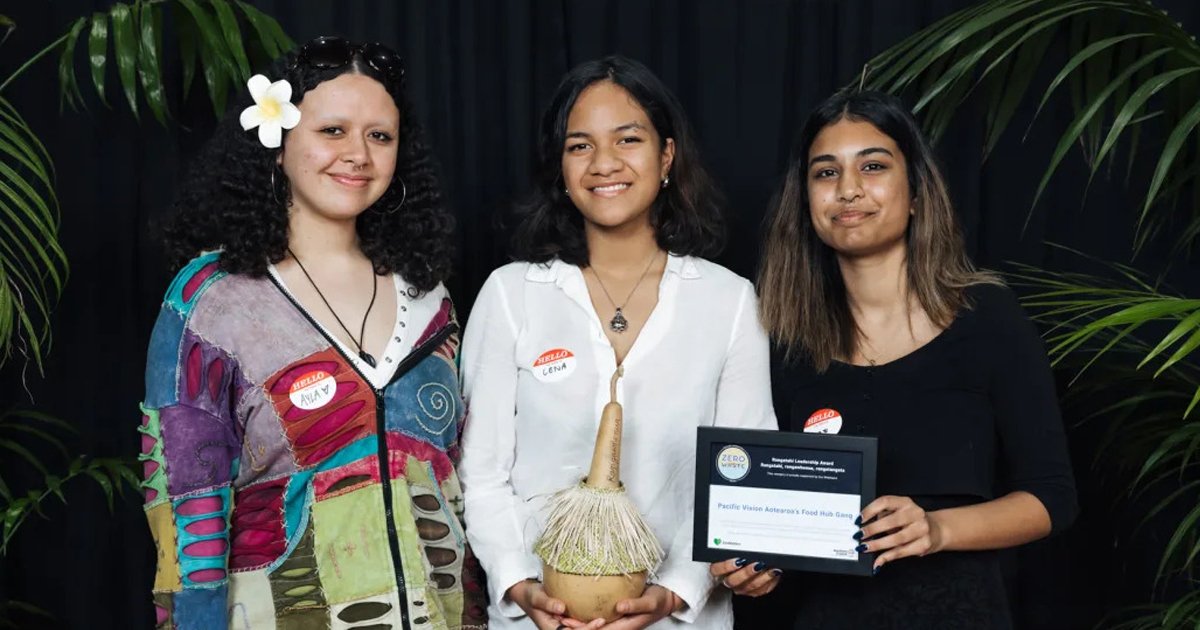Photo: Ayla Brockes (left), Alena Lui (middle), and Nazihah Buksh (right) of Pacific Vision Aotearoa Food Gang, winner of the Rangatahi leadership – Rangatahi, rangawhenua, rangatangata award. Photo: LDR / Logan West for EcoMatters
A trio of young South Aucklanders have been recognised at the Tāmaki Makaurau Waste Awards for repurposing food waste from local shops.
Ayla, Alena and Nazihah, whose group is called the Food Hub Gang, have been collecting food scraps from the New World supermarket in Papatoetoe to create compost for the Papatoetoe Food Hub.
Despite their busy schedules, they dedicate time each week to divert 1.5 tonnes of waste from landfills, as well as supporting the local community garden and advocating for the importance of waste reduction.
Ōtara-Papatoetoe Local Board chair Apulu Reece Autagavaia says the group’s ability to find unique local solutions to lowering waste is admirable.
“Malo faafetai Food Hub Gang!” Apulu said.
“The Ōtara-Papatoetoe Local Board congratulates Pacific Vision Aotearoa’s Food Hub Gang – Nazihah Buksh, Ayla Brockes, and Alena Lui. These are young people finding solutions at a local level.
“The local board has long supported the Papatoetoe Food Hub in its work to repurpose food waste from nearby shops, such as New World, and provide affordable healthy kai for our community. The work of the youth has been important to how Papatoetoe Food Operates.
“There is a Sāmoan saying: ‘E fofo le Alamea le Alamea – we have the solutions to our own problems’. These young people are a great example of this.”
Auckland Council aspires for Tāmaki Makaurau to become zero waste by 2040. On Thursday, 24 October, more than 170 individuals, groups, schools, marae, businesses, and social enterprises were nominated for their commitment to reducing waste and promoting sustainability throughout the region.
The Zero Waste Awards honour exceptional contributions to zero waste initiatives from across Auckland. Repurposing and transforming waste to minimize rubbish led to innovative creations, such as wonky cherries turned into cola, discarded fishing nets repurposed into kitchen panels, and a waste waka used for street cleaning. These creative composting efforts were celebrated at the awards.

